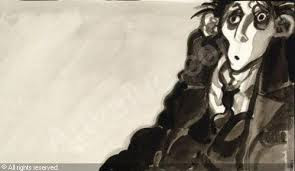Sundog Rising!
Reflections on living the life literary by the Urban Sundog
Timebomb
Way back when I was taking Love Poets of the Ancient World in University, our Professor divided us into small groups, gave us a random selection of poems by Ancient Love Poets, and asked us to try to classify them chronologically in the order they were likely written.
I never quite understood the point of the exercise, since all the poems were in modern English translations and not the original Greek and Latin. So essentially in that format, they’d all manifested probably in the last 20 years or so. Nevertheless I and my partner Rob valiantly took a stab at guessing what likely preceded which.
Rob quickly developed a viable strategy for dealing with any poem we weren’t certain of — which to be honest was most of them. He would read the poem over, stare at it blankly, and then dramatically declare that the piece was “Timeless!” Thereby relieving us of any duty to classify it further.
While a thoroughly sensible approach for dealing with annoying academic assignments, I wonder just how legitimate a claim it is to declare any piece of literature truly timeless? The question came more pertinently to my mind a week or so ago when I read another scholarly work on a classic lover: The James Bond Phenomenon.
The book was a collection of essays on both the Ian Fleming novels and the movies up to and including Pierce Brosnan's. As I reread the entire series of Fleming books within the last five years, I was particularly intrigued by the section on the literary Bond.
Every writer started off their essay with a long apologia on how the Fleming books are so terribly dated, in their sexist and imperialist attitudes. And therefore practically pointless to read today. Hardly timeless.
I disagree …
For one thing just about every one of the writers also agreed that Fleming was actually writing a fantasy of how he’d like the world to be, and fantasies never do go out of style. The books read as well to me in the early teens of the 21st Century as they did in the 60s of the 20th, when I first read them.
Sure there’s a pretty misogynistic attitude in the books, and I’m not saying that’s a good thing. But unfortunately it hardly “dates” the work. Listen to any rap lyrics lately?
Obviously James Bond has many selling points beyond certain of Ian Fleming’s personal unpleasant idiosyncrasies, or they wouldn’t still be making movies about him. The man’s an icon, as the essays also pointed out. A fictional giant other characters are compared against.
There may be aspects of the books readers will have problems with, but the overall image carries the day against them. At worst, when read today one might say James Bond novels need to be seen as representing a certain historical period, but there’s nothing indefensible about that. In fact, most writers, while arguing that as much as Bond represents a world of British Imperialism that has passed away, also state he signifies a new era of freedom in behaviour harkening in the swinging Sixties and all that followed from that revolution in social mores.
So if the portrayal of suspect attitudes isn’t necessarily enough to render a book unreadable given the weight of other factors involved in the storytelling, what might genuinely define a book as so dated that it loses credibility?
At one of those great second hand bookstores I like to frequent, I came across a true gem a few years back — the paperback novel issued to accompany the famous 1956 sci-fi movie classic Forbidden Planet. The story tells the tale of a valiant group of spacefaring Earthmen landing on a distant planet in the far-flung future. In the novel, the first thing the Doctor on the expedition does when he gets off the spaceship on this Edenic brave new world is … wait for it … light a cigarette.
Now that’s dated.
Following up on that theme, there is one aspect of the Ian Fleming novels that has to affect our perception of James Bond as a timeless hero. James, as written, when it comes to smokes is easily a two-pack a day man. He never would have made it out of the 20th Century alive with that habit.
*****
Photography by Renee Beaubien, at Beyond the Prism
on Flickr, at:
https://www.flickr.com/photos/128997372@N08/
*****
REALITY FICTION AND BEYOND!
The Big Mosquito continues, with Instalments 18 and 19 of 49 going up Monday October 5th and Friday, October 9th. As always, at:
http://realficone.blogspot.ca/
Mark Spaeth faces financial ruin, and Jason starts really getting to the heart of things. But not where he would have expected to look.
Featuring:
32. cheque, please
33. the latest thing
Sink Decomposition Series
by Fandango Moberly
#20 of 50














































